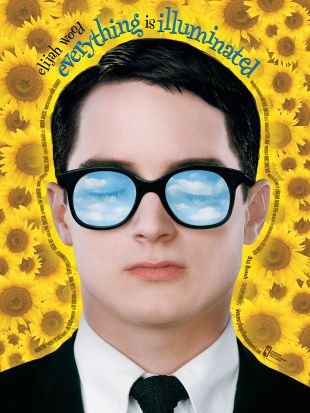
Everything Is Illuminated is a quirky, surprisingly comic drama (serious comedy?) with a smart visual style. It's especially confident considering who's behind the camera: actor Liev Schreiber, debuting as both a screenwriter and a director. Not only does he frame his shots with veteran finesse, but Schreiber also undertakes the difficult task of adapting the largely epistolary novel by Jonathan Safran Foer, excising portions and streamlining the remainder toward the main character's journey through the Ukraine (literally) and his family's past (figuratively). Because the main character -- named Jonathan Safran Foer -- collects all manner of symbolic physical artifacts, sealing them in Ziploc bags, the film takes on a richly colored pop-art aesthetic that lends to its arresting visual sense. Paced by Elijah Wood's reticent performance, which uses his Coke-bottle glasses as an essential prop, the film might be sober throughout if it weren't for the blast of fresh air provided by newcomer Eugene Hütz. Hütz is blessed with just the right combination of Western hip-hop posturing and Eastern European good-natured oafishness, allowing him to steal his every moment onscreen. His Alex is especially delightful in his proclivity for shoehorning English words into unusual contexts, such as asking Jonathan if he had a "premium repose" or preparing him for a "very rigid search." Alex, his eccentric grandfather (Boris Leskin), and Jonathan make a motley cross-cultural and intergenerational trio that propels the absurd set pieces that lie in their path. Just when the film lulls the viewer into a false sense of its light-heartedness, however, it effectively grapples with big issues that lie at the core of European Jews' survivor guilt. Some viewers may question Schreiber's decision to make comedy and tragedy equally dominant elements of his film, but one ends up fully illuminating the other, as it were.
